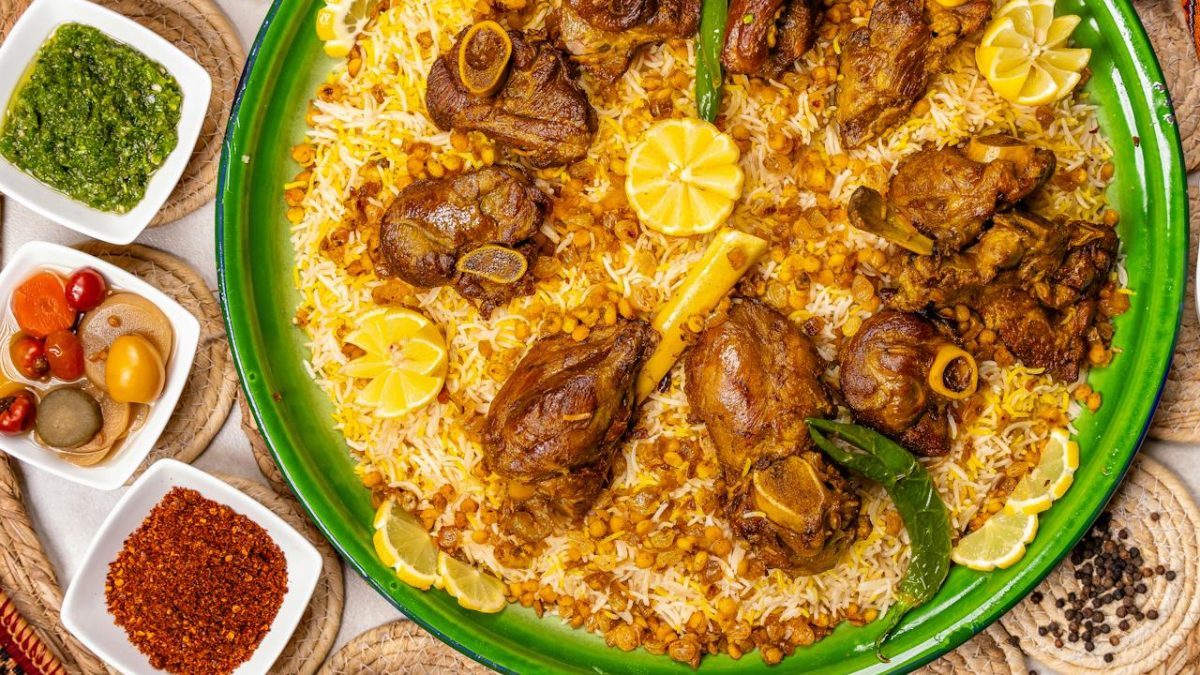Great Omani Delicacies to Try Out
Indulge your taste buds in exotic flavours
Oman boasts a culinary heritage influenced by Arabic, Indian, Persian, and African traditions. Omani delicacies are characterized by an exquisite balance of spices, aromatic herbs, and locally sourced ingredients, creating a tapestry of taste that captivates the palate. From succulent grilled meats and aromatic rice dishes to flavorful seafood and traditional sweets, Omani cuisine offers a captivating journey for food enthusiasts.
Majboos
Also known as Kabsa and Makboos, Majboos is a classic mixed rice delicacy with roots in Saudi Arabia. This dish has gained popularity in the Arab World, particularly in the Gulf nations like Oman. Majboos features a blend of basmati rice, vegetables, and meat or chicken, seasoned with a variety of spices. It is often accompanied by options like yoghurt or a green salad, along with traditional bread and tomato sauce.
Omani Breads
Oman boasts a variety of bread types, including a thick, large, circular variant and a crisp, thin variety resembling a small dinner plate. Many Omanis prefer to bake their own bread at home, while bakeries are also readily available. Moreover, bread holds a prominent place in restaurants, often served alongside meals.
Dates
Palm trees dominate the landscape of plantations in Oman, yielding delicious dates. Varying in size, colour, and texture, these dates constitute a fundamental element in Omani hospitality, offered to every guest. On occasion, Omanis combine dried dates with sesame paste, sesame, or ground coconut. Additionally, they incorporate dates into the preparation of various desserts and traditional Omani sweets, and it is a part of many menus within hotels in Sur Oman, such as the likes of Sur Plaza.
Kahwa

Kahwa, translating to coffee in Arabic, is renowned for its flavour, consistency, and meticulous process of cultivation, drying, and preparation. Omani kahwa is typically infused with cardamom powder, and akin to dates, it holds a pivotal role in Omani hospitality. It is often served alongside Omani Halwa (dessert). Many Omanis enjoy kahwa multiple times throughout the day, and it is not uncommon for them to prepare pots to share when visiting neighbours.
Related posts
Archives
Categories
- Appetizers (54)
- Arab (50)
- Bars (61)
- Burmese (6)
- Café (46)
- Casual Dining (83)
- Chinese (37)
- Coffee House (43)
- Desserts (73)
- Destination Dining (448)
- Diner (64)
- Family Restaurants (123)
- Fast Food (111)
- Fine Dining (571)
- Food Facts (283)
- Healthy Food (164)
- Hong Kong (10)
- Indonesian (15)
- Italian (4)
- Japanese (18)
- Main Dishes (100)
- Maldivian (87)
- Miscellaneous (10)
- Miscellaneous Topics (402)
- Palate (81)
- Recipes (143)
- Restaurants (262)
- Sea Food (145)
- Singaporean (39)
- Sri Lankan (71)
- Steaks & Grill (98)
- Street Food Stalls (185)
- Thai (99)
- Types of Cuisines (179)
- Vegan (72)
- Vegetarian (18)
- Vegeterian (48)
- Vietnamese (22)
- Western (12)

